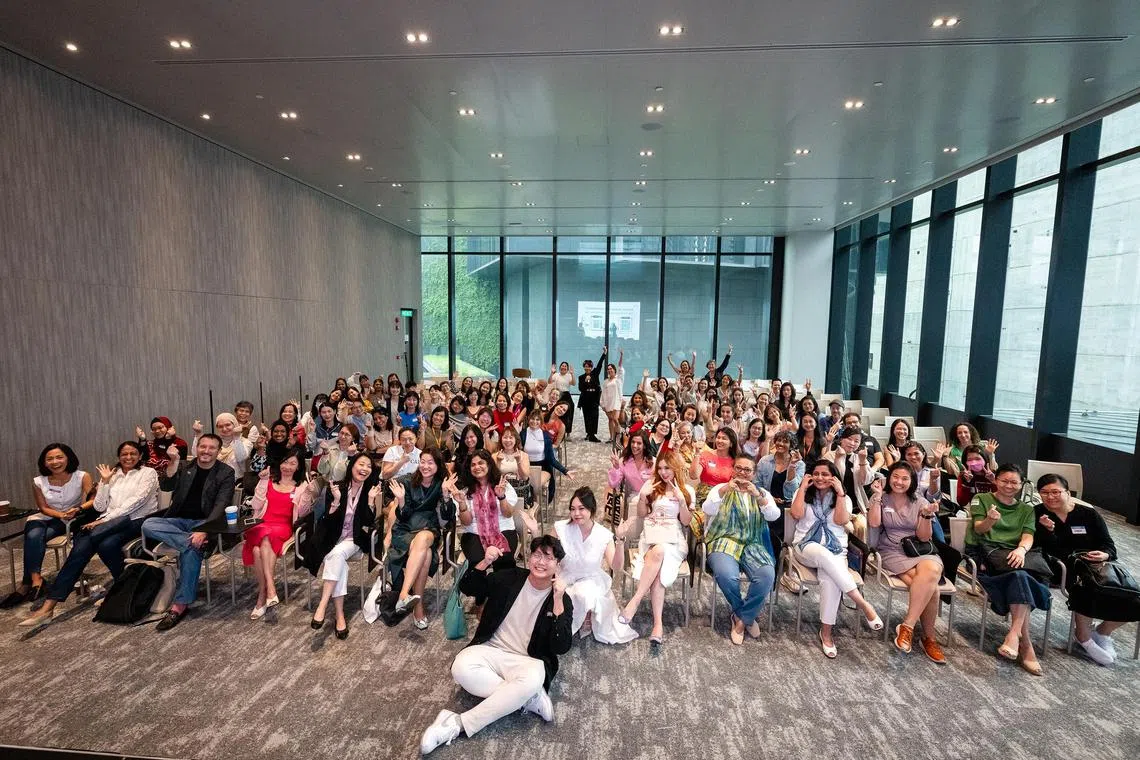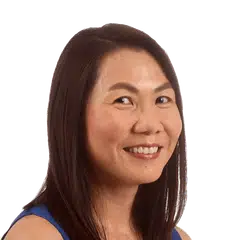A to Z of 2024: More hope, less shame around menopause
Sign up now: Get ST's newsletters delivered to your inbox

Femtech start-up Surety organised Singapore’s inaugural Menopause Festival in November.
PHOTO: SURETY
Follow topic:
SINGAPORE – 2024 marked the year more Singapore women broke the silence surrounding menopause.
While their mothers suffered without complaint, more women in midlife today are seeking help for menopause, which marks the end of a woman’s fertility and is defined as 12 months without a period.
Some 1.1 billion women, or one out of eight people worldwide, will be post-menopausal in 2025. The average woman in Singapore hits menopause at age 49, two years earlier than their counterparts in Western societies.
It is preceded by perimenopause, a turbulent time when fluctuating hormones can cause a plethora of physical and mental symptoms such as joint pain, hot flushes and mood swings. Perimenopause can last up to 10 years and affect a woman’s health, work and relationships.
More than six in 10 women here experienced at least one moderate to extremely severe symptom during perimenopause and menopause, according to a study published by the National University Hospital’s Integrated Women’s Health Programme in October 2023. This is a cohort study of 1,200 women aged 45 to 69 that started in 2014.
The KK Menopause Centre says it has seen an anecdotal increase in women seeking treatment for their symptoms in the year since it opened in October 2023. Some doctors in private practice also report higher patient awareness of the menopause transition.
Menopause also made it into Parliamentary sessions in 2024.
Following The Sunday Times’ story in January on Singapore’s impending menopause wave in a super-ageing society, Member of Parliament Gerald Giam called for greater support for women experiencing the menopause transition during the Committee of Supply 2024 debate in March.
In October, Nominated MP Razwana Begum Abdul Rahim filed an adjournment motion, noting that women lack support during their perimenopausal and menopausal years.
“I expect that it would be unusual for a woman in Singapore, or indeed anywhere in the world, to comfortably disclose to her employer that she is struggling emotionally or physically due to menopause or perimenopause,” she said.
She called on the Government to commission research on the impact of menopause and perimenopause on women’s health and on its economic impact, as well as introduce menopause education as early as secondary school.
November saw Singapore’s inaugural Menopause Festival, organised by femtech start-up Surety, whose Gen Z co-founder was inspired by her mother’s menopause experience. The event attracted about 150 participants and featured forums helmed by medical and other experts.
These movements come in the wake of increased menopause awareness and activism in Western countries since the Covid-19 pandemic.
In the United States, American public broadcaster Public Broadcasting Service launched a documentary, The M Factor: Shredding The Silence On Menopause, on Oct 17. It is the first broadcast film accredited by the Federation of State Medical Boards in the US to provide Continuing Medical Education credits to American healthcare professionals.
Still a taboo subject across many societies, menopause is among several female health conditions with high unmet need and economic potential, according to the report Closing The Women’s Health Gap. It was published in January by the World Economic Forum’s Global Alliance for Women’s Health in collaboration with the McKinsey Health Institute.
This is partly due to the widespread effects of a US-based Women’s Health Initiative (WHI) study in 2002. It drew flawed conclusions about the effects of hormone replacement therapy (HRT) on women’s health, and the alarming media headlines that followed led to a sharp drop in HRT use across the world.
“The findings of the WHI study two decades ago dealt a major blow to women’s health in menopause, resulting in a severe lack of education and reliable information for a generation of women, as well as healthcare professionals,” says Dr June Tan Sheren, a family physician in private practice. She has seen many patients in distress over perimenopausal and menopausal issues, and is also Surety’s medical adviser.
“I wish more women in Singapore knew that there are safe and effective treatment options for the symptoms of menopause, particularly those struggling with symptoms that negatively impact aspects of their lives including their physical health, emotional well-being, self-esteem and confidence, relationships and careers.”


